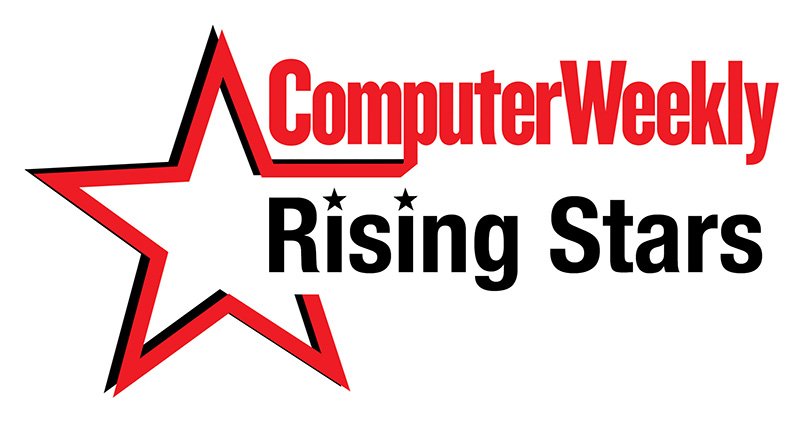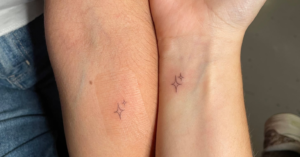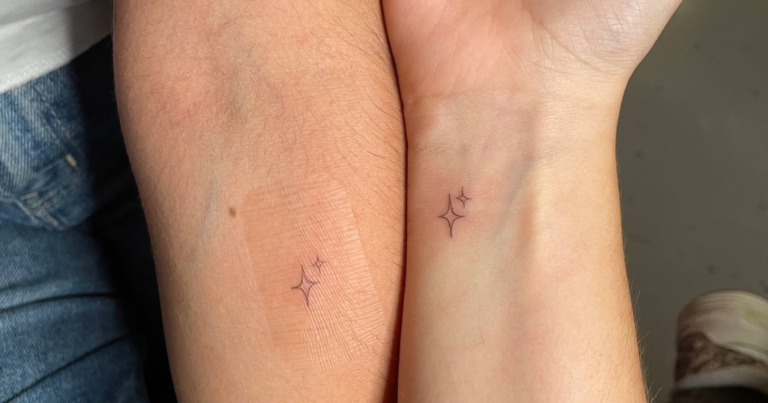This year’s most influential woman in UK technology – Sheridan Ash, founder and co-CEO of Tech She Can – created the charity to bridge the accessibility gap that exists when it comes to female role models in the technology space.
While there are many high-profile women in tech, these role models are people to aspire to be, and many young girls feel they need women only one or two steps ahead of them in their careers to show them the path to the top.
Computer Weekly’s Rising Stars category was introduced in 2014 as a way to increase the number of women showcased as industry role models.
Each year, alongside the top 50 list, Computer Weekly asks its judges to suggest Rising Stars who are starting their journey towards a possible place in the top 50 in the future, and who represent the future of the tech sector.

This year’s Rising Stars are:
Alice Hendy, CEO and founder, R;pple; cyber culture manager, Deloitte
Hendy founded digital suicide prevention tool R;pple in 2020, designed to help people who are making online searches relating to self-harm or suicide.
She is CEO of the charity, which she does alongside her work as the cyber culture manager at Deloitte.
With an extensive background in cyber, Hendy is also a TEDx speaker, an ambassador for One Young World and a JAAQ creator, covering the topic of suicide prevention.
Sarah Underhill, HR director, technology and data (Group Chief Operating Office), Lloyds Banking Group
Underhill has spent her entire career at Lloyds Banking Group, since joining the firm as a graduate in 1999.
She has held several roles at Lloyds, and is currently HR director for technology and data, part of the firm’s Group Chief Operating Office, where she is responsible for developing its people strategies for technology.
She has previously sat on the board of now disbanded tech diversity collective the Tech Talent Charter.
Feryal Clark, Parliamentary under secretary of state for AI and digital government, DSIT
Clark has worked in the public sector for many years, most recently being appointed the parliamentary under-secretary of state for artificial intelligence (AI) and digital government at the Department for Science, Innovation and Technology (DSIT).
Her responsibilities range across AI and digital, including AI regulation, transparency and ethics, as well as cyber security and digital identity, and public services.
Before her Parliamentary career, Clark’s focus was on medicine, having studied bioinformatics at the University of Exeter and worked in roles in diagnostic biochemistry and diagnostic virology.
Tania Duarte, founder, We and AI
Heavily focused on the use of AI, Duarte co-founded non-profit We and AI in 2020 to ensure AI is developed with everyone in mind, creating communities to ensure diverse teams of people are involved in the technology’s future development.
She is also the lead of Better Images of AI, a not-for-profit that offers a free library of images that better represent AI to reduce the use of stereotypical representations of AI such as “humanoid robots, glowing brains, outstretched robot hands, blue backgrounds and the Terminator”.
In 2020, she also became the founding editorial board member of the AI and Ethics Journal, published by Springer Nature.
Anushka Davis, head of talent, engagement and diversity, and head of learning and development, Softcat
Davis heads up talent, engagement and diversity, as well as learning and development, for IT infrastructure firm Softcat.
Her role involves looking after the development of all employees across the organisation, as well as developing the firm’s graduate and apprenticeship programmes.
She is also an advisory board member of community group Women of the Channel.
Nikita Thakrar, founder and CEO, Included VC
Thakrar founded and is CEO of Included VC, a venture capital fund dedicated to making sure diversity entrepreneurs gain the funding they need.
It’s not her first time working with entrepreneurs – previously she headed up innovation and entrepreneurship in Deep Science Ventures at Imperial College London.




















+ There are no comments
Add yours